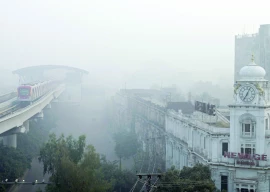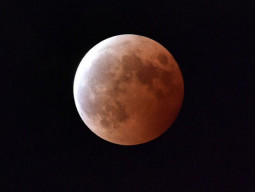
“I wish my homeland to prosper and bloom, even though my grave’s trace is lost,” wrote revered Pakhtun poet and nationalist politician Ajmal Khattak.
The verse seems to be a self-fulfilling prophecy, as two improvised explosive devices detonated inside his under-construction mausoleum, badly damaging it in his native Akora Khattak on Wednesday.
His beloved Pakistan, the land Ajmal Khattak wished to see prosper and bloom, is in the midst of bloody and brutal turmoil, where sectarianism, intolerance and militancy has reached unprecedented levels.
Awami National Party (ANP), which he was whole-heartedly associated with throughout his life, is on the hit-list of Taliban militants.
Khattak, who was a former president of the ANP, is buried in a simple, non-descript graveyard, close to the GT Road in Akora Khattak of Nowshera district. One has to walk just a stone’s throw away to approach the white marble octagonal structure, located in the middle of the graveyard.
The scene inside reveals a shocking picture: concrete walls are pockmarked with shrapnel, debris litter the interior and mangled iron that once supported its dome precariously dangles on the sides. The grave itself suffered heavy damage, and labourers piled up earth over it.
The black marble tombstone lies broken in two pieces. One half carries Khattak’s name and the other has the day he died and a couplet-“O Pakhtuns don’t forget this austere Khattak, you may need such a rebel in the future again.”
Sacrilege and anger
Akora Khattak is a small town on the banks of River Indus on the GT Road, close to Attock crossing. Its name is traced back to Malik Akor Khan, grandfather of Pakhtun warrior and legendary poet Khushal Khan Khattak, who led an uprising of Pakthun tribesmen against Mughal Emperor Aurganzeb.
Of late, however, the town has received widespread attention for the wrong reasons in the international media as the birthplace of the Taliban movement.
This comes after many prominent militant figures studied at the local Jamia Haqqania. The seminary is situated across the road from Khattak’s mausoleum.
Commenting on the heinous attack, an office bearer of the local ANP chapter Tahir Mohmand told The Express Tribune that “to me it is like Baba died twice today.” Tahir was lost for words on the grisly incident. “Baba was not like any other politician, rather, a dervish in its true sense,” he stated.
Locals are also mulling a unique response, as on Saturday a Khushal Literary Jirga, an organisation formed by the late poet was deliberating to hold a poetry recital in protest against the attack. The jirga’s General Secretary Khan Mohammad Tanha told The Express Tribune that they can resist militants, but the poet’s message of peace and tolerance does not allow them to do that. “How can these people lack respect for hujra, mosque and grave?” he questioned.
Alternative discourse
Prominent analyst Khadim Hussain contextualises this attack as an attempt to eliminate cultural symbols. “It is meant to change the basic discourse with an alternative one, he stated. Hussain claimed that the onslaught was aimed at eliminating cultural diversity, destruction of symbols and the emotional bond that Khattak had with his homeland and everything attached to it.
Although the residents of Akora Khattak recoil in revulsion over the attack, they think that all is not lost. They express hope by garnering belief from one of the poet’s verses: “When layers of earth were burying a seed, I heard it saying tomorrow will be my turn to blossom.”
Published in The Express Tribune, May 13th, 2012.

1724238420-0/Untitled-design-(3)1724238420-0-165x106.webp)

1731678234-0/pete-(1)1731678234-0-165x106.webp)












COMMENTS
Comments are moderated and generally will be posted if they are on-topic and not abusive.
For more information, please see our Comments FAQ